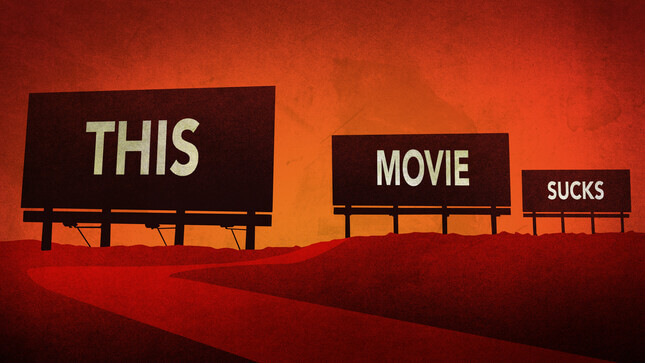One Blog Post On Splinter News Dot Com About Three Billboards Outside of Ebbing, Missouri


The following contains spoilers.
On Sunday, Three Billboards Outside Ebbing, Missouri cleaned up at the Golden Globes, winning awards for Best Drama, Best Actress in a Drama, Best Supporting Actor, and Best Screenplay. It’s now being talked about as an Oscar frontrunner. This is bad news, because Three Billboards is terrible—a nasty, empty, lazy mess of a thing. Seeing it so praised and rewarded makes me feel like I’m losing my mind.
Three Billboards, written and directed by Martin McDonagh, is the kind of movie that purports to be About Something, but is really about nothing: Its plot—about a mother in Ebbing, MO, grieving over her daughter’s rape and murder who erects three billboards castigating the chief of police for not solving the crime—is ostensibly serious, but it has so little actual interest in its characters as anything other than mechanisms for McDonagh’s tired provocations that you wind up not caring at all.
Three Billboards is not really about Mildred, anyway. It’s about McDonagh. He’s nearly 50 years old, but Three Billboards feels like it could have been written by a somewhat precocious teenager, one that thinks a young man calling his mother an “old cunt” is interesting, or that having white people throw the N-word around is something other than a cheap way of getting a rise out of people, or that beatings and explosions are a substitute for character development. Everything—Mildred’s memory of her daughter; her interactions with her son; her dealings with her abusive ex-husband—becomes a moment for arch speechifying or gruesome, hairpin plot turns. There is barely a genuine second in the entire movie. It is utterly hollow.
Most of all, Three Billboards is a movie that thinks virulent, violent racism is little more than a plot point to be toyed with. Sam Rockwell, who won the Golden Globe for Best Supporting Actor, plays Jason, a dimwitted cop who is widely known to have tortured a black person in his custody. This fact is played mostly for laughs—until Jason gets to redeem himself in a series of increasingly absurd contrivances.
Bear with me here as I describe just a few of them: After his boss, the chief of police, (a man played by Woody Harrelson, whom the film repeatedly insists is a great guy despite no evidence) kills himself, Jason blames Mildred’s billboards and beats the young man who sold her the ad space to a bloody pulp. He then gets fired from his job, but just as he’s at his lowest point, he gets a letter the chief wrote him before killing himself. The letter says that Jason is a good man at heart. Jason is not a good man! He is a racist, abusive cop. But McDonagh loves him, and so must we.
Jason then winds up, thanks to about 12 more dumb twists, engulfed in a fire caused by Mildred at the police station—he survives and makes sure to save the file on her daughter’s case. Then, he runs into a man who, because of comments the man makes, he decides is the daughter’s killer. And then he makes more sacrifices to try and catch the man, who it turns out is not the daughter’s killer, but him and Mildred having reconciled, decide this mystery man is still a bad person, and they team up to go to Idaho and possibly murder him. End of movie. If you read all of that and thought, “that sounds confusing and stupid!” you would be right.
Jason’s racism and brutality are all but forgotten. Even Mildred, whom the movie takes great pains to establish has close friendships with black people in Ebbing, neatly sets it aside. We hear little to nothing from black people in general, except when they pop up to nudge the plot along a bit; McDonagh’s interest lies elsewhere. This is not a serious or interesting way to treat a story about racism, rape, and murder, but McDonagh is not a serious or interesting filmmaker.
Three Billboards has been compared repeatedly to Crash, that other infamous depiction of the goodness at the heart of every white racist, but it might be even worse. Crash was a gravely misguided and awful movie, but it tried to take its subject seriously; Three Billboards doesn’t even do that.
It is wild to me that this movie is such a major awards contender that it could possibly win Best Picture at the Oscars. It feels like an act of collective madness—or, more accurately, a sign of white and male Hollywood’s deep-seated need to find an easy path out of an especially racist and sexist period. I hated it.